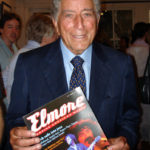Artist: Dennis Coffey
Album: Hot Coffey in the D
Label: Resonance
Release Date: 01/13/2017

Resonance and its leader Zev Feldman have unearthed yet another gem, Motown guitar legend Dennis Coffey leading a trio that features legendary organist Lyman Woodard (Martha Reeves & the Vandellas) and drummer Melvin Davis (Smoky Robinson) in a mostly soul jazz live recording at Morey Baker’s Showplace Lounge in Detroit from 1968. This is heady stuff, coming a half decade later than the heyday of Jimmy Smith, Jack McDuff and other iconic organ trios. This is not to say that organ trios are a thing of the past. We still have Medeski, Martin and Wood as well as other jazz and blues organ trios. Nonetheless, given Coffey’s tenure across a bevy of Motown groups and hits where he generally had to play with restraint, this setting allowed him to stretch out, giving the listener the opportunity to really understand what Coffey’s wonderful guitar talent. There’s soul, rock and even a bit of rock ‘n’ roll in these nine tracks being issued for the first time.
Coffey was a “Funk Brother” along with bassist James Jamerson, one of the world’s iconic studio ensembles for countless Motown hits as celebrated in the Grammy Award winning soundtrack for Standing in the Shadows of Motown, which featured Coffey. When you think of the Temptations hit, “Ball of Confusion,” or Edwin Starr’s “War,” it’s Coffey that you hear on guitar. Along the way, Coffey collaborated with his partner, Mike Theodore, to produce records in several genres. They were the ones who discovered and produced Sixto Rodriguez, the subject of the Oscar winning documentary from 2012, Searching for Sugar Man. Producer by day, Coffey linked up with Woodard and Davis in a few Detroit clubs at night, culminating in an extended stay at Morey Baker’s Showplace Lounge.
Their gigs, unlike most of the Motown stuff they were involved in, were not about dancing, but simply listening. They developed a loyal following. Coffey says, “We played there once a week and always packed the house. Much of our audience was middle to upper class folks who were judges, attorneys, businessmen and women who just loved listening to our brand of funk, jazz, rock and soul.” Coffey would constantly bring in new music from different genres, having worked out all the musical arrangements in advance, as is evidenced by the repertoire on this album, which includes covers of soul classics such as “Casanova (Your Playing Days Are Over),” pop hits of the day such as a jazzy take on Jimmy Webb’s “By the Time I Get to Phoenix,” a soulful version of Burt Bacharach’s “The Look of Love,” most often associated with Dusty Springfield, a straight interpretation of the Herbie Hancock classic “Maiden Voyage,” as well as two Coffey originals– the opening-distortion-laden funk opus “Fuzz” and the irresistible grove of “The Big D.” Lyman’s organ is stellar as he provides churning and swirling counterpoint to Coffey’s riffing and Davis’s drumming really pushes the tempos. The sound quality is pristine, especially given the age of the recording.
The package itself is extraordinary, including an extensive 56-page book of liner notes with archival photos, essays by producers Zev Feldman and Kevin Goins, plus interviews with Coffey, Melvin Davis, original recording co-producer Mike Theodore, music industry icon Clarence Avant and Motor City soul singer Bettye LaVette, all combining to talk not only about the players and the music, but the history of the Detroit club scene. Both the recording and the accompanying history are fascinating. Soak it in.
-Jim Hynes







Be the first to comment!